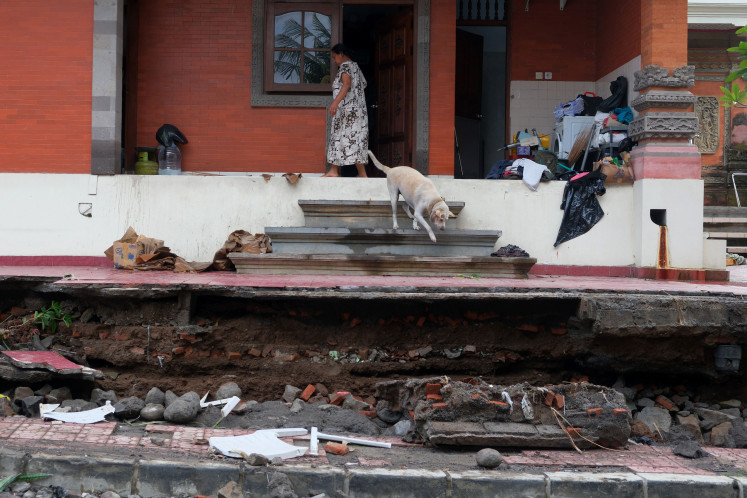Popular Reads
Top Results
Can't find what you're looking for?
View all search resultsPopular Reads
Top Results
Can't find what you're looking for?
View all search resultsRecord 137,000 refugees, migrants crossed Mediterranean this year: UN
A record 137,000 people made the perilous journey across the Mediterranean to Europe in the first half of 2015, most of them fleeing war, conflict and persecution, the United Nations said Wednesday
Change text size
Gift Premium Articles
to Anyone
A
record 137,000 people made the perilous journey across the Mediterranean to Europe in the first half of 2015, most of them fleeing war, conflict and persecution, the United Nations said Wednesday.
"Europe is living through a maritime refugee crisis of historic proportions," the UN refugee agency warned in a report, adding that the number of people making the crossing swelled 83 percent in the first six months of 2015 compared to a year earlier.
The situation is expected to worsen as more clement summer weather allows ruthless people smugglers to dispatch more people on the dangerous crossing, often in rickety boats and at the mercy of human traffickers.
The immigration crisis is a burning issue for the EU, where member states have been wrangling over the best ways to tackle human trafficking and arguing over how to share the burden of helping new arrivals, many of them ill, starving and destitute.
The soaring numbers arriving in Italy and Greece, before moving on to other northern European states in the hope of finding jobs, has sparked outcry and growing anti-foreigner rhetoric in many countries.
It hailed Brussel's decision to redistribute 40,000 Syrian and Eritrean asylum-seekers who have already arrived in Europe, but called on for greater solidarity between countries to help both migrants and the states carrying the heaviest load.
UN refugee chief Antonio Guterres stressed most of those attempting the dangerous journey across the Mediterranean are not economic migrants.
"Most of the people arriving by sea in Europe are refugees, seeking protection from war and persecution," he said in a statement.
A third of those who have arrived by sea in Italy or Greece this year came from war-ravaged Syria, while people fleeing violence in Afghanistan and Eritrea's repressive regime each made up 12 percent of arrivals.
Other top countries of origin include conflict-wracked Somalia, Nigeria, Iraq and Sudan, the report said.
This year has also seen a sharp increase in the numbers of people dying as they try to cross the Mediterranean. So far 1,867 have been killed -- 1,308 of them in April alone.
The unprecedented number of deaths that month spurred European leaders to significantly broaden search and rescue operations in the Mediterranean, cutting fatalities to 68 in May and 12 in June.
"With the right policy, backed by an effective operational response, it is possible to save more lives at sea," Guterres said.
Still, "for the thousands of refugees and migrants who continue to cross the Mediterranean every week, the risk remains very real," he added.
Many of those fleeing to Europe first seek safety in increasingly overburdened neighboring countries such as Lebanon, where a quarter of inhabitants are now Syrian refugees, the report said.
The UN also noted a shift in migration patterns, with the number of people travelling the eastern Mediterranean route from Turkey to Greece now surpassing the route from north Africa to Italy.
Italy, which last year had 170,000 people land on its shores -- more than three quarters of all maritime arrivals in Europe -- saw that slump in the first half of 2015 to 67,500.
In Greece, however, arrivals have more than doubled to 68,000 so far this year compared to 43,500 in all of 2014, the report said.
Greece has fewer than 2,000 reception places, and many refugees and migrants push on, aiming often for northern and Western Europe, particularly Sweden and Germany, which are seen as offering better protection and support.
But getting there can meanwhile require long and dangerous journeys, often at the hands of smugglers through the Balkans and onwards through Hungary. (iik)(+++)










